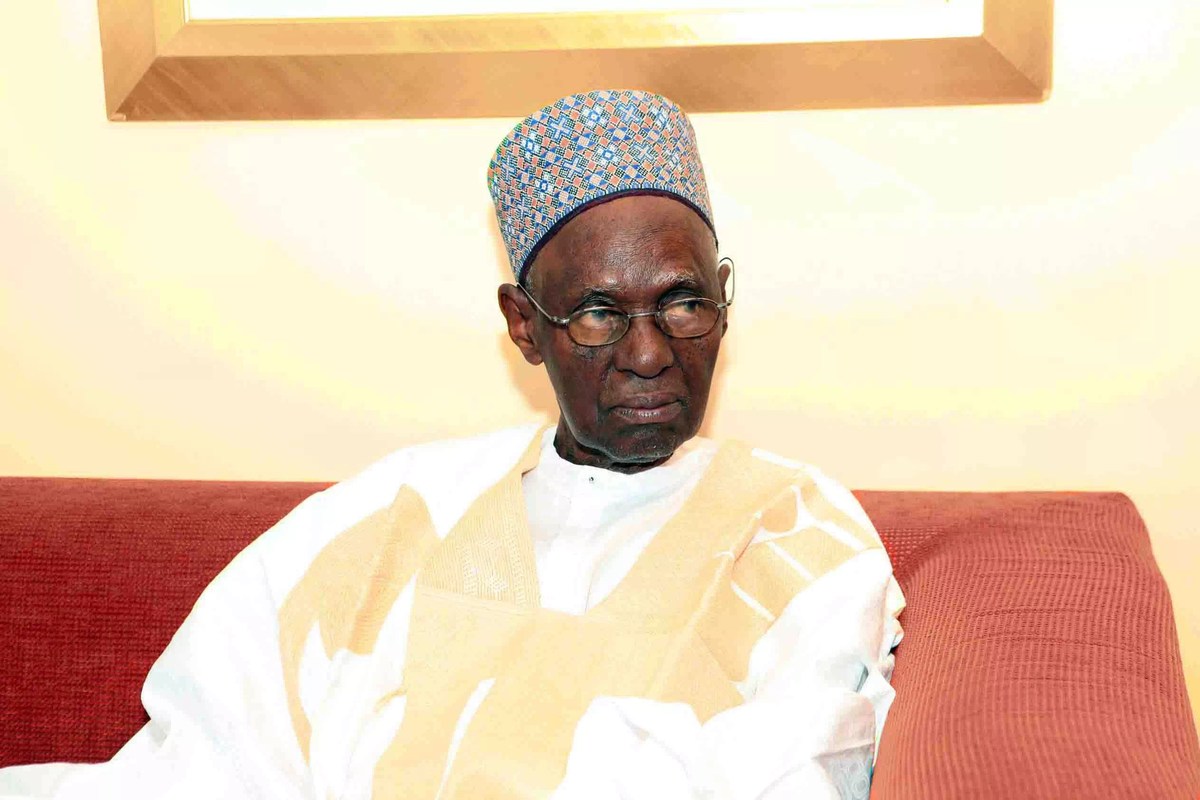6 times Shehu Shagari’s words defined Nigeria
Former president Shehu Shagari died on Friday at National Hospital, Abuja, aged 93. His grandson Bello Shagari announced the former president’s death on Twitter. The late former president will be remembered for many things but most important of them are three words that have come to define Nigeria’s relationship with West Africa, and the entire […]

Shehu Shagari
Former president Shehu Shagari died on Friday at National Hospital, Abuja, aged 93.
His grandson Bello Shagari announced the former president’s death on Twitter.
The late former president will be remembered for many things but most important of them are three words that have come to define Nigeria’s relationship with West Africa, and the entire continent.
Here’s a look at quotes that defined the late president.
“Ghana must go”
Shagari famously said “Ghana must go”—and that led to the epic exodus of Ghanaians from Nigeria in the late January of 1983.
His actual announcement was that all foreigners without the right paperwork had just weeks to leave Nigeria, Legit.ng reported.
Many of the foreigners were West Africans, most of them from Ghana.
The official statement back then said: “If they don’t leave they should be arrested and tried and sent back to their homes. Illegal immigrants, in fact, under normal circumstances, should not be given any notice whatsoever.”
Support for high oil price
The Washington Post reported in November 1980 Shagari’s commitment to high pricing policy of the Organization of Petroleum Exporting Countries regardless of market pressures.
It wrote, “Shagari, speaking at the opening of Nigeria’s new $800 million Kaduna Refinery, also said that the Nigeria National Petroleum Corp., the government-run agency that markets the country’s oil, would be reorganized to provide greater ‘profit motivation’.”
Comparing Jonathan with Buhari
One account recorded what Shagari told an AIT reporter in Sokoto.
“Jonathan may not be the best, but I can mention three to four breakthroughs in Nigeria that occurred under his regime.”
This came after 32 years of his silence in the media—32 years after his government was overthrown by General Muhammadu Buhari, now president.
“Under this administration, train is now back in Nigeria after about 30yrs of neglect. In fact, my 27-year-old grandchild boarded a train for the first time in his life in 2014.”
Last birthday of Ekwueme
In January of 2018, Shagari was among dignitaries who paid tributes upon the death of former Vice President Alex Ekwueme, who had served under him.
Ekwueme was younger, Shagari said he never knew his vice’s 2017 birthday would be the last, according to the Sun.
Shagari’s son Aminu relayed the former president’s words. “I’m not here to give undeserved praises on Ekwueme; whatever I say here, I have told him so in his life…I choose him because he came across as a man of impeccable integrity and character. We worked harmoniously because we had the same vision. He was a deputy I trusted and mischief makers could not drive a wedge between us. His character remain impeccable. Even in death his achievements cannot be diminished.”
Debts and obligations
Shagari presented his administration’s first budget to the National Assembly on July 1, 1980 to speak about a national dilemma, according to the Punch.
He said: “As of September 30, 1979, the last day of the military regime, the overall financial position of the Federal Government showed a deficit of N1.4bn (N1,403,621,928). The Federal Government was not alone in this dilemma. The state governments were in the same predicament and were likewise unable to meet their contractual obligations and, naturally, this affected the performances of the economy generally both in the public and private sectors. On the external front, our debt rose to N364m in 1978/79”.
Balance and overthrow
On December 29, 1983—a few hours before his government would be toppled in a military takeover—he presented the 1984 budget to the National Assembly at Race Course, Lagos, reported the Punch.
He said: “An objective of government policy during 1984 will, as earlier indicated, be the improvement in the balance of payments and reserves position. Accordingly, out of the estimated foreign exchange earnings of N8.562bn during 1984, N562m will be set aside in order to raise the level of external reserves from its present level of less than a billion naira to N1,464 billion as of the end of 1984. The balance of N8.0bn will, therefore, be available to meet the country’s projected foreign exchange commitments during the year. Of this amount, N3.0bn will be utilised in servicing external loan commitments while N5.0bn will be applied to pay for the importation of raw materials, machinery and spare parts, essential commodities and other items in the current account section of the balance of payments”.
